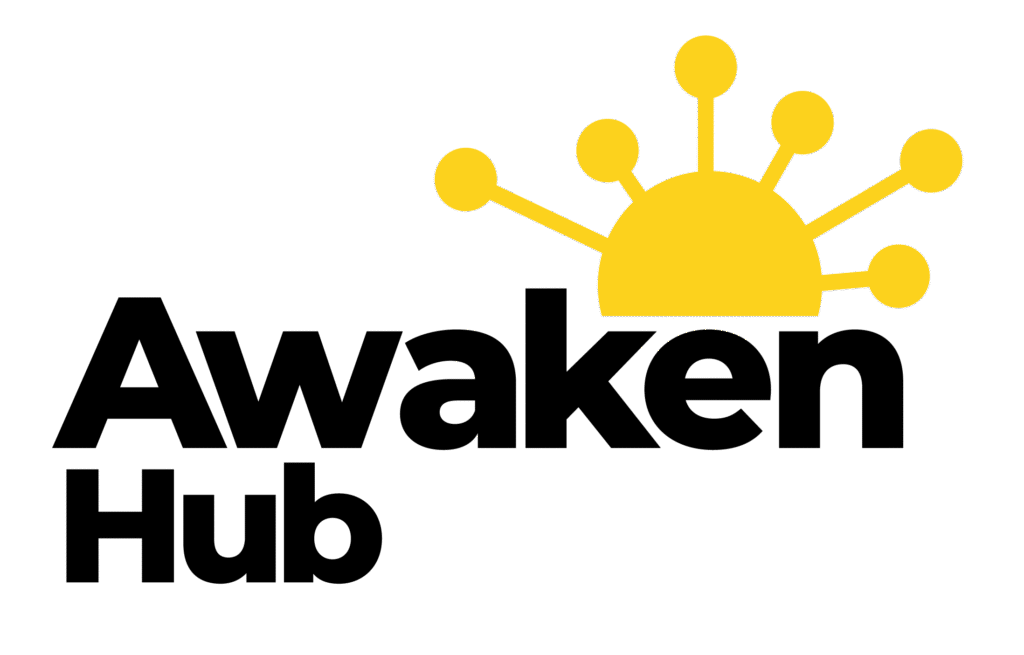Understanding CRM Marketing: Definition, Strategies, and Tools
Discover CRM marketing: definition, strategies, and tools for enhancing customer relationships, loyalty, and revenue. Boost your marketing efforts today!
Introduction
Customer Relationship Management (CRM) marketing is a powerful strategy focused on managing your interactions with current and potential customers to grow your business. It emphasises building strong, lasting relationships to enhance customer loyalty and increase sales.
Why is CRM Marketing Important?
– Helps businesses understand and meet customer needs.
– Enables personalised marketing that boosts customer satisfaction.
– Automates repetitive tasks, saving time and resources.
– Provides valuable insights into marketing performance.
Benefits of CRM Marketing:
– Enhanced customer service and satisfaction.
– Improved customer retention and loyalty.
– Better allocation of marketing resources.
– Increased return on investment (ROI).

What is CRM Marketing?
CRM marketing stands for Customer Relationship Management marketing. It involves strategies, tactics, and technologies used by businesses to manage their interactions with customers throughout their lifecycle. The primary goal is to enhance customer loyalty, retention, revenue, and lifetime value.
Strategies and Tactics:
CRM marketing strategies are focused on understanding customer needs and behaviours to create personalised experiences. These strategies may include:
- Customer Segmentation: Dividing customers into groups based on shared characteristics. For example, segmenting based on purchase history or engagement levels.
- Targeted Campaigns: Crafting specific marketing messages for different segments. For instance, sending special offers to high-value customers.
- Next Best Action: Predicting the most effective action to take with each customer. This could be recommending a product based on past purchases.
Technologies:
CRM marketing relies heavily on technology to collect, analyse, and use customer data effectively. Some key technologies include:
- CRM Databases: These databases store detailed customer information, such as purchase history and interaction records.
- Marketing Automation Tools: These tools automate repetitive tasks like sending emails and tracking customer interactions. They ensure timely and personalised communication.
- Analytics Software: This software analyses customer data to identify trends and measure campaign effectiveness.
Customer Lifecycle:
The customer lifecycle refers to the stages a customer goes through in their relationship with a brand. CRM marketing aims to manage this lifecycle effectively:
- Awareness: Making potential customers aware of your brand.
- Acquisition: Converting prospects into customers.
- Engagement: Keeping customers engaged with your brand through personalised content and offers.
- Retention: Ensuring customers continue to choose your brand over competitors. This can involve loyalty programs and regular follow-ups.
- Advocacy: Turning satisfied customers into brand advocates who recommend your products to others.
Loyalty and Retention:
Building customer loyalty and retention is a major focus of CRM marketing. According to a McKinsey study, 71% of consumers expect brands to deliver personalised interactions, and 76% get frustrated when that doesn’t happen. By using CRM tools to personalise customer interactions, businesses can significantly improve customer satisfaction and loyalty.
Revenue and Customer Lifetime Value:
Effective CRM marketing can lead to increased revenue and higher customer lifetime value (CLV). By understanding customer preferences and behaviours, businesses can create more relevant offers, leading to higher sales. Additionally, retaining existing customers is often more cost-effective than acquiring new ones, which boosts overall profitability.
In conclusion, CRM marketing is about using data-driven strategies and technology to manage customer relationships throughout their lifecycle. It aims to enhance loyalty, retention, revenue, and customer lifetime value by providing personalised and timely interactions.
Next, we’ll explore the key components of CRM marketing, including CRM databases and marketing channels.
Key Components of CRM Marketing
CRM Database
A CRM database is the backbone of any CRM marketing strategy. It stores all the customer data in one place, making it easy for businesses to access and manage information. This data includes everything from contact details and purchase history to customer preferences and behaviour patterns.
A well-maintained CRM database allows you to segment customers, analyse their data, and predict the next best action. This leads to more personalised and effective marketing campaigns.
Customer Data
Customer data is the fuel that powers CRM marketing. It includes:
- Contact Information: Names, addresses, phone numbers, and email addresses.
- Purchase History: Records of past purchases and transaction details.
- Behavioural Data: Website visits, email opens, and social media interactions.
- Preferences: Customer likes, dislikes, and feedback.
Having access to this data helps businesses understand their customers better and tailor their marketing efforts accordingly.
Segmentation
Segmentation involves dividing your customer base into smaller groups based on shared characteristics. This can be demographics, purchase behaviour, or engagement levels. For example, you might have segments for potential customers, existing customers, and inactive subscribers.
Segmentation allows you to send relevant messages to the right people. For instance, potential customers might receive nurturing emails, while existing customers get loyalty offers.
Next Best Action
The next best action is a recommendation of what a business should do next to engage a customer. It’s based on data analysis and can include actions like sending a personalised email, offering a discount, or suggesting a new product. This helps in providing timely and relevant interactions, enhancing customer satisfaction.
Marketing Channels
Marketing channels are the methods used to deliver messages to customers. Effective CRM marketing leverages multiple channels to reach customers where they are most active. Here are some key channels:
- Email: Still one of the most effective channels for personalised communication. Use it for newsletters, promotions, and updates.
- SMS: Quick and direct, great for time-sensitive offers and reminders.
- Digital Ads: Targeted ads on social media and search engines can reach a wide audience.
- Web Push: Notifications sent directly to a user’s web browser, useful for instant updates.
- Mobile Push: Notifications sent to a user’s mobile device, effective for app users.

Using a mix of these channels ensures that your message reaches the customer through their preferred medium, increasing the chances of engagement.
Next, we’ll delve into CRM marketing automation, a powerful tool that can streamline your marketing efforts and make your campaigns more effective.
CRM Marketing Automation
CRM marketing automation is a game-changer. It automates repetitive tasks and lets you focus on creative work. Here’s how it works:
Automation Processes
From the first interaction, automation captures data and responds to customer activities. For example, when someone visits your website and shows interest in a product, the system can automatically send a follow-up email. This keeps potential customers engaged without manual effort.
Customer Activities
Automation tracks everything a customer does—visits, clicks, purchases, and even inactivity. This data is crucial for understanding customer behaviour and preferences. With this information, you can tailor your marketing strategies to meet their needs.
Personalised Communications
Personalisation is key. According to a McKinsey study, 71% of consumers expect personalised interactions, and 76% get frustrated when they don’t get them. Automated systems can send personalised emails, SMS, or push notifications based on customer behaviour. For example, if a customer abandons their cart, the system can send a reminder with a discount offer.
Segmentation
Segmenting your audience is essential for targeted marketing. Automation tools can divide your customers into groups based on their activities, preferences, and purchase history. For instance, you can create segments like potential customers, existing customers, and inactive subscribers. Each group receives tailored messages that resonate with their specific needs.
Tracking
Tracking customer interactions helps you understand what works and what doesn’t. CRM systems record every touchpoint, giving you a clear view of the customer journey. This data helps you refine your strategies and improve customer engagement.
Optimisation
Optimisation is about making your campaigns better over time. Automated systems analyse the performance of your marketing efforts and suggest improvements. For example, if an email campaign isn’t performing well, the system can recommend changes to the content, timing, or delivery channel.
In summary, CRM marketing automation streamlines your marketing processes, enabling you to deliver personalised, timely, and relevant communications. This not only enhances customer experience, but also boosts engagement and loyalty.
Next, we’ll explore the different types of CRM systems and their unique features.
Types of CRM Systems
Understanding the different types of CRM systems is crucial for choosing the right one for your business. Each type offers unique features that cater to various organisational needs. Here’s a breakdown:
Collaborative CRM
Collaborative CRM systems are designed to streamline communication across different departments. Imagine your marketing team, sales representatives, and customer support agents all working in silos. This can lead to customers repeating themselves each time they interact with a new department. Collaborative CRM ensures all departments share information in real-time, creating a seamless customer experience.
For example, if a customer contacts support about an issue, the agent can see all previous interactions with sales and marketing. This unified view helps resolve issues faster and improves customer satisfaction.
Operational CRM
Operational CRM focuses on automating and improving customer-facing processes. Think of it as the bridge between different teams, ensuring that everyone has access to the same customer information. This type of CRM helps in generating leads, converting them into contacts, and providing the best processes for retaining customers.
Imagine a sales rep getting instant access to a customer’s purchase history and preferences. This allows for personalised interactions and better customer service, ultimately leading to increased loyalty.
Analytical CRM
Analytical CRM systems are all about data. They help you gather, analyse, and save data from customer interactions. This data can reveal trends and patterns in customer behaviour, helping you understand what actions lead to the most success.
For instance, you can use analytical CRM to find out which marketing campaigns are most effective or which customer segments are most profitable. This allows you to make data-driven decisions that can significantly improve your marketing strategies.
Cloud-based CRM
Cloud-based CRM, also known as software as a service (SaaS) or on-demand CRM, stores data on an external, remote network. Employees can access this data anytime and anywhere with an internet connection. This is ideal for companies with limited technological expertise or resources.
However, data security is a concern. Since the company doesn’t control the data storage, there are risks if the cloud provider goes out of business or is acquired. Despite this, the quick and easy deployment of cloud-based CRM makes it a popular choice.
On-premises CRM
On-premises CRM systems place the responsibility for administration, control, security, and maintenance on the company using the software. This means purchasing licenses upfront and managing the software on the company’s servers.
This type of CRM is beneficial for companies with complex needs that require a high level of customisation. While it involves a prolonged installation process, it offers complete control over the data and processes.
Open Source CRM
Open Source CRM systems make their source code available to the public. This allows companies to customise the software to fit their specific needs without additional costs. Open source CRM is ideal for companies looking to integrate social media channels and improve social CRM practices.
Platforms like Bitrix24 and SuiteCRM offer robust alternatives to proprietary systems, allowing for extensive customisation and flexibility.
Next, we’ll delve into the benefits of CRM marketing and how it can enhance your customer relations and business processes.
Benefits of CRM Marketing
Enhanced Customer Service
With a CRM system, customer service teams have instant access to customer information, such as past purchases and interaction history. This makes it easier to provide quick and effective support. For example, if a customer reaches out with a question, the support agent can immediately see their purchase history and any previous issues, leading to faster resolution times.
Trend Spotting
CRMs collect and organise customer data, making it simple to identify trends and insights. This can help businesses understand customer behaviour and preferences. For instance, by analysing CRM data, a company might discover a seasonal trend in product demand, allowing them to adjust their inventory and marketing strategies accordingly.
Automation
Automation is a game changer in CRM marketing. Tasks like sending follow-up emails, scheduling social media posts, and tracking customer interactions can be automated. This not only saves time but also ensures that no task falls through the cracks. For example, a CRM can automatically send a welcome email to new customers, freeing up time for the marketing team to focus on more strategic tasks.
Cost Savings
By moving to a cloud-based CRM, companies can save on hardware and maintenance costs. There’s no need for expensive servers or complex installations. Plus, cloud CRMs are scalable; you only pay for the features you need and can easily add more as your business grows.
Connecting Teams
A CRM system connects different teams within a company, such as marketing, sales, and customer service. This shared access to information ensures everyone is on the same page. For example, marketing can see which leads the sales team is focusing on, and customer service can view any ongoing issues, leading to better coordination and a more seamless customer experience.
Increasing Productivity with AI
Combining CRM with AI can significantly boost productivity. AI can analyse customer data to provide insights and predictions. For example, AI can identify the best time to send marketing emails or forecast quarterly sales targets. Generative AI can also automate labour-intensive tasks like drafting emails or writing product descriptions, allowing teams to focus on more strategic activities.
Next, we’ll explore effective CRM marketing strategies to help you make the most of your CRM system.
CRM Marketing Strategies
Personalised Marketing Campaigns
Personalisation is key to effective CRM marketing. According to a McKinsey study, 71% of consumers expect brands to deliver personalised interactions, and 76% get frustrated when that doesn’t happen. Start by using customer names and details in your emails. This simple step can make a big difference. For example, an e-commerce business might use purchase history to recommend similar products, increasing the likelihood of a sale.
Customer Lifecycle Management
Managing the customer lifecycle involves tracking and nurturing customers from their first interaction to post-purchase. CRM marketing supports this by providing data at each stage. For instance, you can send nurturing emails to potential customers, loyalty program details to existing customers, and re-engagement offers to inactive subscribers. This targeted approach ensures you meet customer needs at the right time.
Identifying High-Value Customers
A CRM helps you identify high-value customers by analysing data such as past purchases and engagement levels. These customers are crucial for your business. By segmenting them, you can create exclusive deals or loyalty programs tailored to their preferences. This not only boosts their satisfaction but also increases their lifetime value to your business.
Data Analysis
Data analysis is the backbone of CRM marketing. It helps you understand customer behaviour and preferences. For example, by analysing which products are frequently bought together, you can create effective cross-selling campaigns. Additionally, tracking metrics like conversion rates and customer retention can highlight areas for improvement in your marketing strategy.
Segmentation
Segmentation involves dividing your audience into groups based on shared characteristics. This allows for more targeted marketing efforts. Start with broad groups like potential customers, existing customers, and inactive subscribers. From there, you can refine your segments further. For instance, segmenting by purchase history or geographic location can lead to more relevant and effective marketing messages.
Targeted Campaigns
Once you have your segments, you can create targeted campaigns tailored to each group’s specific needs. For example, potential customers might receive introductory offers, while existing customers get information about new products or loyalty rewards. Inactive subscribers could be re-engaged with special discounts or updates on new features. This targeted approach ensures your marketing efforts are relevant and effective.
Next, we’ll discuss best practices for CRM marketing to ensure you get the most out of your CRM system.
Best Practices for CRM Marketing
Implementing CRM marketing effectively can transform your business. Here are some best practices to ensure you get the most out of your CRM system:
Centralising Contact Data
A CRM acts as a centralised repository for all your customer data. This includes names, emails, phone numbers, purchase histories, and even sentiment analysis. When everyone from marketing to sales references the same data, it leads to better decisions and more personalised interactions.
Why it matters: Imagine trying to close a high-value lead. With centralised data, you know their budget, industry, and past interactions. This helps you tailor your approach and increases your chances of success.
Tracking Customer Experiences
Understanding where a customer is in their journey is crucial. A CRM helps track every interaction, from the first website visit to post-purchase support.
Example: Use tools like Pipedrive to send automated nurture emails. These can re-engage inactive contacts or guide new leads towards a purchase.
Streamlining Project Management
CRMs like Semrush CRM can streamline your project management. Keep track of client details, deadlines, and progress in one place.
Benefit: This reduces the chances of missed deadlines and ensures everyone is on the same page, leading to smoother project execution.
Collaborating with Clients
A collaborative CRM ensures that all departments—from marketing to customer support—have access to the same information. This eliminates the need for customers to repeat themselves and creates a seamless experience.
Pro Tip: Regularly update your CRM with new data so all teams are always up-to-date.
Integrating with Other Tools
Integrating your CRM with other software like email platforms, social media tools, and analytics software can provide a more holistic view of your campaigns.
Fact: According to Forbes, leveraging CRM reports and analytics can guide you to make better decisions, improving overall performance.
Automating Repetitive Tasks
Use marketing automation to handle repetitive tasks like sending follow-up emails or posting on social media. This frees up your time for more strategic activities.
Example: When a website visitor shows interest in a product, your CRM can trigger an email campaign to nurture that lead while automatically updating the sales team.
Measuring Marketing Impact
CRM data provides insights into the effectiveness of your marketing efforts. Track metrics like conversion rates, customer retention rates (CRR), and customer lifetime value (CLV).
Key Insight: If you notice an increase in the “average value of won deals,” it suggests your marketing team is attracting high-value leads. This can guide future campaigns.
By following these best practices, you’ll ensure that your CRM marketing efforts are both effective and efficient, leading to better customer relationships and increased revenue.
Next, we’ll explore frequently asked questions about CRM marketing to address common concerns and provide further insights.
Frequently Asked Questions about CRM Marketing
What are the benefits of integrating CRM into marketing strategies?
Integrating CRM marketing into your strategy offers several key benefits:
1. Personalised Campaigns: By leveraging CRM data, businesses can create tailored marketing campaigns that resonate with different customer segments. Personalised emails, offers, and messages increase engagement and conversion rates.
2. Customer Satisfaction and Loyalty: Understanding customer preferences and behaviours allows for more relevant interactions. This leads to higher customer satisfaction and fosters loyalty. According to a McKinsey study, 71% of consumers expect personalised interactions, and 76% get frustrated when they don’t receive them.
3. Trend Identification: CRM systems help spot trends by analysing customer data. This insight allows businesses to adapt their strategies to meet changing customer needs.
4. Resource Allocation: CRM tools provide insights into the effectiveness of marketing campaigns, helping businesses allocate resources more efficiently. This ensures that marketing efforts yield the highest possible return on investment (ROI).
How does CRM marketing support customer lifecycle management?
CRM marketing is crucial for managing the customer lifecycle, which includes stages such as awareness, acquisition, engagement, purchase, and post-purchase support.
1. Tracking Interactions: CRM systems track all customer interactions across various channels, providing a comprehensive view of the customer journey. This data helps tailor marketing efforts to each stage of the lifecycle.
2. Targeted Campaigns: By understanding where a customer is in their journey, businesses can design targeted campaigns to move them to the next stage. For instance, nurturing emails for potential customers or loyalty programs for repeat buyers.
3. Feedback Collection: CRM tools facilitate collecting customer feedback, which is vital for improving products and services. This continuous feedback loop helps enhance customer satisfaction and loyalty.
4. Repeat Business: By addressing customer needs and preferences at each lifecycle stage, businesses can encourage repeat purchases and increase the likelihood of referrals.
How can CRM marketing help in identifying and targeting high-value customers?

Identifying and targeting high-value customers is one of the most impactful uses of CRM marketing.
1. Data Analysis: CRM systems analyse customer data, including purchase history and interaction patterns, to identify customers who have the highest lifetime value.
2. Segmentation: By segmenting customers based on their value, businesses can focus their marketing efforts on the most profitable segments. This ensures that high-value customers receive the attention they deserve.
3. Personalised Strategies: Creating personalised marketing strategies for high-value segments can lead to better engagement and retention. For example, exclusive deals, personalised communications, and loyalty programs can be tailored to these customers.
4. Exclusive Deals and Loyalty Programs: Offering exclusive deals and loyalty programs to high-value customers enhances their experience and encourages them to stay loyal to the brand.
Key Insight: By focusing on high-value customers, businesses can maximise their revenue and ensure a higher return on their marketing investments.
Next, we’ll delve into the conclusion to summarise the key points and highlight how The Digital Projects can help you achieve sustainable growth with SEO and CRM workflow automation.
Conclusion
We’ve explored CRM marketing, its strategies, and the tools that make it effective. By understanding and implementing CRM marketing, businesses can enhance customer relationships, boost loyalty, and significantly increase their revenue.
At The Digital Projects, we believe in the power of combining SEO and CRM workflow automation to drive sustainable growth. Our expertise in these areas helps businesses attract the right leads, save valuable time, and streamline their marketing efforts.
Imagine your schedule filling itself with high-paying projects while automated reminders and follow-ups keep your customers engaged. With the right digital marketing strategy and automation tools, this vision can become a reality.
Ready to take your business to the next level? Check out our SEO and CRM workflow automation services and see how we can help you achieve sustainable growth and streamlined marketing efforts.
Thank you for joining us on this journey through CRM marketing. We look forward to helping your business succeed online.











